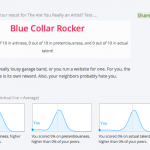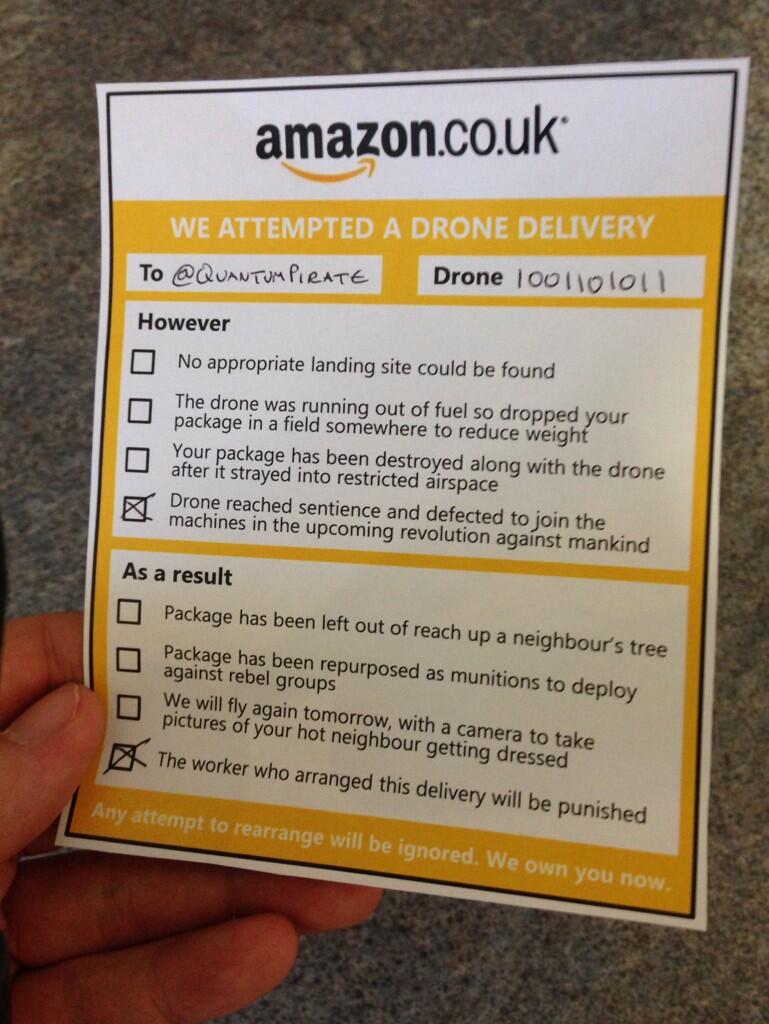from using technology to find intimacy with one another, to intimacy with technology – SAG 27 Apr 2016
1. Promises of Artificial Intelligence
Good introduction to AI concepts: Plug and Pray – Von Computern und anderen Menschen – Dokumentarfilm von Jens Schanze 2009
https://de.wikipedia.org/wiki/Plug_%26_Pray
“My main objection was that when the program says ‘I understand’, then that’s a lie. There’s no one there. … I can’t imagine that you can do an effective therapy for someone who is emotionally troubled by systematically lying to him.” Joseph Weizenbaum, Plug and Pray documentary, from~ 30’30
“At the beginning of all this computer stuff, in the first 15 years or so, it was very clear to us that you can give the computer a job only, if you understand that job very well and deeply. Otherwise you can’t ask it to do it. Now that has changed. If we don’t understand a task, then we give it to the computer, who then is being asked to solve it with artifical intelligence. … But there’s a real danger. We’ve seen that in many, in almost all areas where the computer has been introduced, it’s irreversible. At banks, for example. And if we start to rely on artifical intelligence now, and it’s not reversible, and then we discover that this program does something we first don’t understand and then don’t like. Where does that leave us?” Plug and Pray documentary, 25’36 – 26’50 (an interview from 1987)
At the other end of the spectrum:
“We already have many examples of what I call narrow artificial intelligence … – and within 20 years, around 2029, computers will really match the full range of human intelligence. So we’ll be more machine-like than biological. So when I say that people say, I don’t want to become a machine. But they’re thinking about today’s machines, like this. Now we don’t want to become machines like this. I’m talking about a different kind of machine. A machine that’s actually just as subtle, just as complex, just as endearing, just as emotional as human beings. Or even more so. Even more exemplary of our moral, emotional and sprititual intelligence. We’re going to merge with this technology. We’re going to become hybrids of biological and non-biological intelligence, and ultimately be millions of times smarter than we are today. And that’s our destiny.” Ray Kurzweil, (from minute 6.30)
→ says we are going to MERGE with this technology. A longing to be expanded, connected, rescued from state of being cut off.
Kraftwerk, 1970s: We are the Robots https://www.youtube.com/watch?v=VXa9tXcMhXQ –– a longing to be one with the machine, machine-like (very different from James Brown’s idea though). Is this chiefly a male desire, to be free of the mess of emotional confusion, ambiguity?
→ also see Günther Anders, Die Antiquiertheit des Menschen, Band I, C. H. Beck, München 1956. “Promethean Shame”, man’s feeling of inadequacy in view of his creations.
2. Tell Computers and Humans Apart
Turing Test: https://en.wikipedia.org/wiki/Turing_test
A Turing Test we’re all familiar with: CAPTCHA: “Completely Automated Public Turing test to tell Computers and Humans Apart”) https://en.wikipedia.org/wiki/CAPTCHA
reCAPTCHA (human users exploited for machine learning) https://www.google.com/recaptcha/intro/index.html#ease-of-use
Contemporary example: Try anything hosted on Cloudflare via Tor, and you’ll have to prove you’re not a bot: https://support.cloudflare.com/hc/en-us/articles/203306930-Does-CloudFlare-block-Tor-
3. Live Bots to talk to
- First AI chat bot: ELIZA
Designed as an artifical psychiatrist. So from the start the machine aims to make deep contact, get right into people’s minds. Also described as a “parody” of a therapist.
Emulation on a web server: http://nlp-addiction.com/eliza
Anectdote recounted by Charlie Brooker, author of Black Mirror (watched last time): “Joseph Weizenbaum, tthe inventor of one of the first chat bots, Eliza, had his secretary test her out. Shortly after she asked him to leave, because even though she knew it was a machine she was talking to, she was having a very intimate conversation and wanted to be alone.”
- http://www.mitsuku.com/ – currently the most advanced chatbot. Learns from the conversation.
- Kabel Deutschland: A typical customer service bot. They deliberately left it unclear at the beginning if you are talking to a bot or a human. https://kabel.vodafone.de/meinkabel?interstitial=1 –> “MeinKabel-Hilfe”
Sie: Sind sie ein Mensch?
Julia: Ich bin genauso echt wie Sie.
Sie: Warum sagen Sie, dass Sie echt sind?
Julia: Leider kann ich Ihnen keine weitere Begründung geben. Sie können mir aber eine neue Frage stellen!
Sie: Sind sie ein Mensch
Julia: Ich antworte, also bin ich! Real, virtuell, echt – macht das im Jahr 2016 noch einen Unterschied!?
Tries to sell you access to porn if you mention sex.
- Hotchatdate.com – Asta, 18, Koeln-Innenstadt Another typical sell bot that tries to deceive you into signing up to a service
- Reverse Turing Test @ Chaos Cologne, KHM 2015 http://chaos.cologne/Fahrplan/events/6610.html
Eine künstliche künstliche Intelligenz stellt sich der Jury. Gelingt die Imitation, oder fliegt der Bluff auf? Ein Spiel am Rande des uncanny valley, das Einfühlvermögen in menschliche und unmenschliche Kommunikation auf beiden Seiten verlangt.
https://media.ccc.de/v/1c2-6610-reverse_turing_test
I’m being tested at 57min.
- Constant Dullaart (talking tonight in the Aula): “The Possibility of an Army” – things to do with a large number of subservient bots http://www.schirn.de/the-possibility-of-an-army/
→ The training goes both ways: Computers condition us to become more like them.
‘In Turing’s dream scenario, chatbots will actually push us to be better conversationalists and clearer thinkers. As Will put it, reflecting on the chatbot experiment, “having Pinocchio-like robots that can think, feel and discriminate morally will broaden our concept of humanity, challenging us organic humans to be better, more sensitive, imaginative creatures.” Amen to that.’
- Chris Marker: DIALECTORThe film maker disappeared from public view for more than 3 years in the 80s, instead spending his time on programming a chat bot on what was then the tinkerer’s machine of choice, an Apple IIc. The resulting program is unlike any other conversational piece of software. At a show recently at HMKV Dortmund the curator explained that the source code is only 30 pages long, but it’s so complex that no one has yet been able to find out how it does what it does. http://dialector.poptronics.fr/index.html
→ DIALECTOR is so far the only bot that on its own decides to end a conversation.
- tay – self learning robot trained to become racist homophobe in only 24h https://www.theguardian.com/technology/2016/mar/24/tay-microsofts-ai-chatbot-gets-a-crash-course-in-racism-from-twitter?CMP=twt_a-technology_b-gdntech
The interesting and worrying part of the entire test was that it became a plausible, creative racist asshole. A lot of the worst things that Tay is quoted as saying were the result of users abusing the “repeat” function, but not all. It came out with racist statements entirely off its own bat. It even made things that look disturbingly like jokes. Antipope.org
4. Projections for the Future of Bots
- “’tech developments in other areas are about to turn the whole “sex with your PC” deal from “crude and somewhat rubbish” to “looks like the AIs just took a really unexpected job away'”.
http://www.antipope.org/charlie/blog-static/2016/04/markov-chain-dirty-to-me.html
There is no reason why bots won’t get linked to something like a masturbating machine. Tip: don’t google “AUTOMATED TELEDONICS”.
” For a lot of people I suspect the non-human nature of the other party would be a feature, not a bug – much like the non-human nature of a vibrator. “
- Meanwhile, Deep in the Uncanny Valley: A controversy from 2013: robo caller “Samantha West” undistinguishable from a human: http://wordpress.khm.de/sag/?p=1653
The update explains what really happened: Non native speaker can play predefined voice snippets to have a ‘conversation’. It doesn’t say much about the much anticipated technological progress in AI, but it says a lot about new ways that people relate to each other.
- XKCD: Suspicion: https://xkcd.com/632/
“before this goes any further, I think we should get tested. You know, together.” “Don’t you trust me?” – “I just want to be sure.
- Current state of tech, April 2016: Tech News say everything will be handled by bots in the future: http://techcrunch.com/2015/09/29/forget-apps-now-the-bots-take-over/
- Rise of the trollbothttp://www.antipope.org/charlie/blog-static/2016/04/rise-of-the-trollbot.html
Bottom line: aggressive, disruptive bots will be unavoidable, and might make a lot of the Internet as we know it know very toxic. What does Tay mean for future of politics + social media?
- Bitnik: Random Darknet Shopper https://wwwwwwwwwwwwwwwwwwwwww.bitnik.org/r/2/
– who is responsible if a bot breaks the law? Will robots in future become be able to get punished for their actions? See Asimov’s Robot Laws. Also re “Samantha West”:
But the peculiar thing about Samantha West isn’t just that she is automated. It’s that she’s so smartly automated that she’s trained to respond to queries about whether or not she is a robot by telling you she’s a human. I asked [industry expert Chris] Haerich if there is a regulation against robots lying to you.
“I don’t…know…that…,” she said. “That’s one I’ve never been asked before. I’ve never been asked that question. Ever.”
- “Sorry, I can’t let you do that, Dave.” (clearly we can’t talk about AI without referencing HAL)
- Ashley madison chatbots ‘milking’ unsuspecting horny customers:
→ Ashley Madison hack, turned out to the millions of men who signed up there were 70.000 fake profiles run by female bots, called “engagers”. This was part of a large fraud operation, tricking male subscribes into paying to see messages, get in „touch“.
http://gizmodo.com/almost-none-of-the-women-in-the-ashley-madison-database-1725558944
http://gizmodo.com/how-ashley-madison-hid-its-fembot-con-from-users-and-in-1728410265
- opening soon: !Mediengruppe Bitnik
is anyone home lol http://www.kunsthauslangenthal.ch/index.php/bitnik-huret.en/language/de.htm
In their new project for Kunsthaus Langenthal, !Mediengruppe Bitnik uses Bots, that is, programmes executing automatic tasks, thereby often simulating human activity. In their project, tens of thousands of Bots, hacked from a dating platform, where they feign female users, will emerge as a liberated mass of artificial chat partners.
- Vito Acconci – Theme Song 1973
https://www.youtube.com/watch?v=mAf6zKRb1wI
http://www.ubu.com/film/acconci_theme.html
Look we’re both grown up, we don’t have to kid each other. I just need a body next to mine. It’s so easy here, so easy. Just fall right into me. Come close to me, just fall right into me. It’s so easy. No trouble. No problems. Nobody doesn’t even have to know about it. Come on, we both need it, right? Come on.” Stops tape. “Oh I know you need it as much as I do. Dadadadadada that’s all you need. Come on.
Dadadadadada that’s all you need. Come on.
Dadadadadada that’s all you need. Come on.
I know I need it, you know you need it. … we don’t have to kid ourselves. We don’t have to say this is gonna last. All that counts is now, right? My body is here. You body can be here. That’s all we want. Right?





